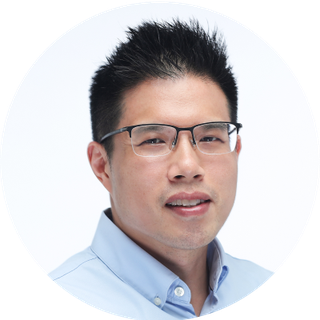Push for inclusive society started in 2007: Tharman
The govt's efforts in this area didn't arise from the results of GE2011, he says

Singapore
THE shift towards building a more inclusive society in Singapore started a full decade ago, with numerous measures introduced over the years to uplift the population, especially those from the lower- and middle-income groups. Making this point on Friday, Deputy Prime Minister and Finance Minister Tharman Shanmugaratnam said this shift was not simply "an innovation of the last five years", since the last general election (GE).
Speaking at a special SG50 lecture organised by the Economic Society of Singapore, he said: "I recognise that there's some political cunning in saying that this all came about because of GE2011. I'm sorry, it didn't. The world did not start in 2011."
It was at the last GE that the ruling People's Action Party saw its national vote share drop to 60.1 per cent, the lowest since independence. "We made very clear our intentions and motivations in 2007, (stated that) it was going to be a multi-year strategy and have been moving towards a more inclusive society, step by step. We intend to continue on this journey, learning from experience and improving where we can," he told his audience, made up mainly of bankers, accountants and economists.
He peppered his hour-long speech with a series of charts, one of which illustrated how a middle-income household in 2015 would receive S$2 in benefits from the government for every dollar of taxes paid. This is higher than the S$1.75 in benefits per dollar last year, and more than what a similar household got in Finland (S$1.30 in 2013) and the United Kingdom (S$1.40 in 2013).
Another diagram showed the increase in government transfers, after paying taxes, for the bottom 20 per cent of Singapore families. In 2005, these transfers amounted to 103 per cent of their entire household income; this figure is estimated to rise to 163 per cent this year.
Mr Tharman also outlined other ways the government has tried its best to temper inequality in society. Among them is a new fair-consideration framework to ensure professionals, managers and executives (PMEs) get a fair deal when it comes to getting a job and moving up the ranks in a company.
Meanwhile, lower-income workers receive top-ups of up to 30 per cent of their wages in cash and Central Provident Fund (CPF) savings, a move he described as a "very significant intervention" for this group.
In the area of housing, the government is busy ensuring, by giving out additional grants, that lower- and middle-income couples are able to own their homes soon after getting married.
Putting things in perspective, Mr Tharman said that by the time a young person now in the bottom 10 per cent income bracket turns 65, he would have received about S$200,000 in benefits from the government. This is equivalent to 40 per cent of his total CPF savings.
The system in place is both progressive and sustainable, but he pointed out that it was not all about just doing more and spending more. It is equally important, he added, to reinforce the values that sustain support for a fair and inclusive society.
"We have got to do it in a way that gives everyone the pride of contributing in their own way, while getting a fair deal. We can't take a hands-off policy. It cannot be all about self-reliance, because the natural workings of the market will lead to inequality and excessive inequality, and it will just sap the morale of our society," he said.
"We can't take a hands-off strategy, but neither do we want a strategy of handouts all the way ... We've got to have a system of hand-ups starting from young, helping everyone discover their strengths and to have a real chance of succeeding in what they do."
But he stressed that, beyond inclusivity, Singapore must also continue to innovate to maintain its standing in the world in the face of increased competition.
The country can survive in the long run only if every person, company and organisation out there is able to "unleash that innovative spirit" from within, he said.
Singapore will progress by thinking and planning for the long term, not by taking populist measures or making short-term political calculations.
"That is how we got to where we are today, not just as an economic experiment, but as a society that has transformed itself for the better for all its citizens. That's the way we go forward," he said.
KEYWORDS IN THIS ARTICLE
BT is now on Telegram!
For daily updates on weekdays and specially selected content for the weekend. Subscribe to t.me/BizTimes
International
South Korea government offers first compromise to end doctors' strike
Japanese AI tool predicts when recruits will quit jobs
India votes in gigantic election dominated by jobs, Hindu pride and Modi
Britain’s retail sales disappoint in sign of lacklustre recovery
Explosions in Iran, US media reports Israeli strikes
US veto sinks Palestinian UN membership bid in Security Council
